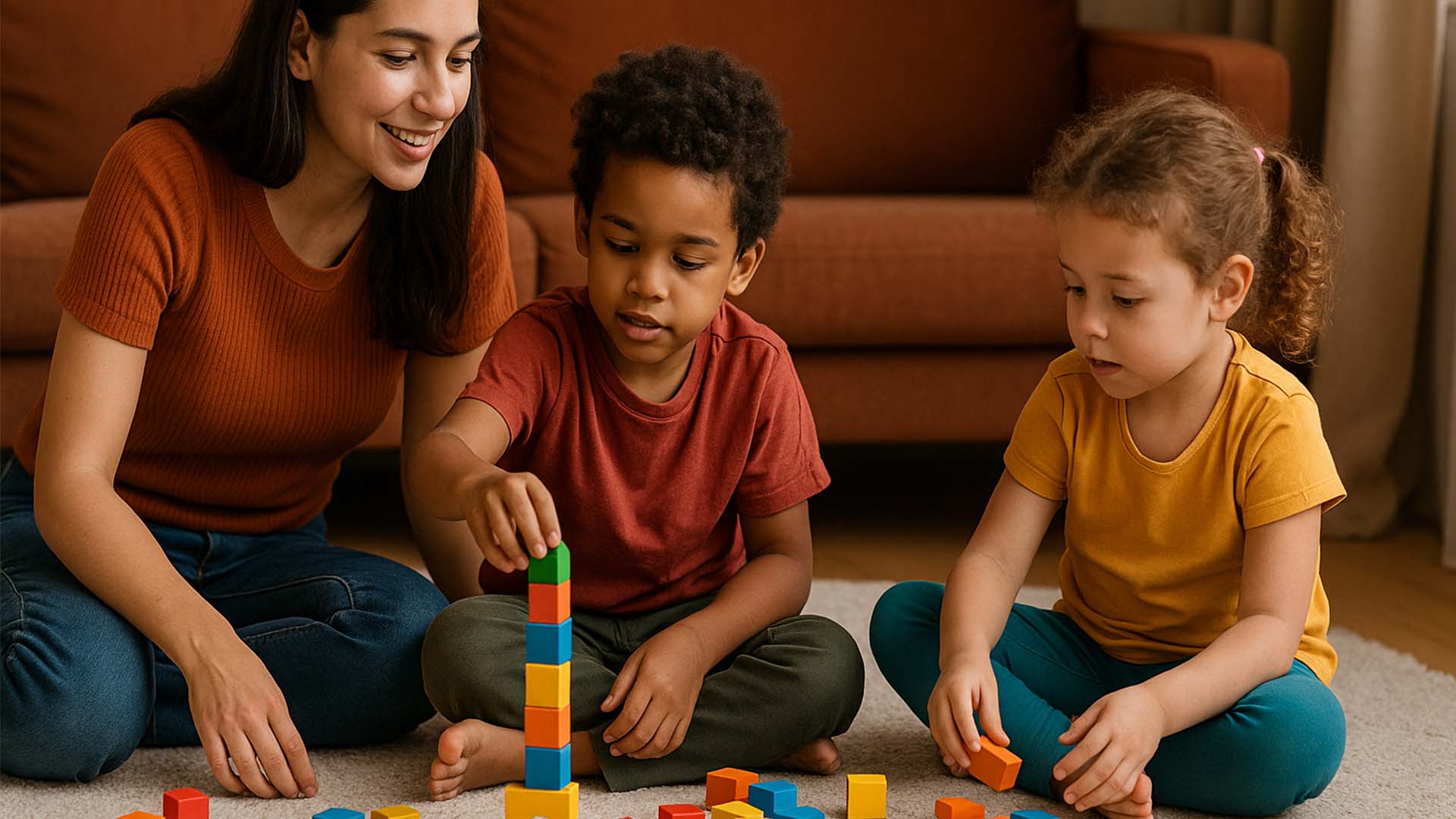In a world filled with distractions and pressures, many parents are seeking more meaningful and effective ways to connect with their children. Two approaches that are gaining widespread attention are positive parenting and mindful parenting.
These philosophies focus on building a strong, respectful parent-child relationship, fostering emotional intelligence, and creating a supportive environment for children to thrive. This article will delve into the principles of positive and mindful parenting, explore the importance of play-based learning, and offer practical tips for incorporating these strategies into your daily life.
What is Positive Parenting?
Positive parenting is an approach that emphasizes empathy, respect, and encouragement. It moves away from traditional disciplinary methods that rely on punishment and instead focuses on teaching children self-control and problem-solving skills. The core idea is to build a loving and supportive relationship with your child, which in turn motivates them to cooperate and make positive choices.
The Rise of Mindful Parenting
Mindful parenting takes the principles of mindfulness—being present and non-judgmental—and applies them to the parent-child relationship. It involves paying close attention to your own emotions and reactions, as well as your child’s, without immediate judgment. This practice can help reduce parental stress, improve emotional regulation for both parents and children, and foster a deeper connection within the family [1]. By being fully present, parents can respond to their children’s needs more thoughtfully and effectively.
The Importance of Play-Based Learning
Play is not just a fun activity for children; it is a fundamental part of their development. Play-based learning is an educational approach that allows children to learn and explore through play. Research shows that play-based learning is highly effective in promoting social, emotional, cognitive, and language skills [2]. It encourages creativity, problem-solving, and collaboration in a natural and enjoyable way. When combined with positive and mindful parenting, play-based learning can create a powerful foundation for a child’s lifelong learning and well-being.
Practical Tips for Positive and Mindful Parenting
Here are some ways to integrate these approaches into your family life:
- Practice Active Listening: When your child is talking, give them your full attention. Listen to their feelings and perspectives without interrupting or judging.
- Use Encouragement Instead of Praise: Instead of saying “good job,” which can be a form of judgment, try using encouragement like, “You worked so hard on that drawing!” This focuses on effort and builds self-esteem.
- Set Clear and Consistent Boundaries: Positive parenting is not about being permissive. It’s about setting firm but respectful limits and involving children in finding solutions to problems.
- Take Mindful Pauses: When you feel overwhelmed or triggered, take a moment to breathe and calm yourself before responding to your child. This models healthy emotional regulation.
- Engage in Playful Learning: Dedicate time for unstructured play where your child can lead the way. Join in their games and show genuine interest in their world.
Q&A: Positive and Mindful Parenting
Q1: Is positive parenting the same as being a permissive parent?
A1: No, positive parenting is not about letting children do whatever they want. It involves setting clear and consistent boundaries with respect and empathy, rather than through punishment.
Q2: How can I practice mindful parenting when I’m so busy and stressed?
A2: Mindful parenting can be practiced in small moments throughout the day. Even taking a few deep breaths before responding to a challenging situation can make a big difference. It’s about quality of presence, not quantity of time.
Q3: Why is play-based learning so important for young children?
A3: Play-based learning is crucial because it allows children to develop essential skills like problem-solving, creativity, and social interaction in a natural and engaging way. It fosters a love for learning that can last a lifetime.
Q4: Can these parenting approaches work for children of all ages?
A4: Yes, the principles of positive and mindful parenting can be adapted for children of all ages, from toddlers to teenagers. The key is to maintain a foundation of respect, empathy, and connection.
Sources
- Mindful parenting: what it is, benefits & 10 ways to practice
- For Young Kids, The Power of Play-Based Learning
- Parenting Trends to Watch Out for in 2025
- 8 Game-Changing Parenting Predictions for 2025








0 Comments